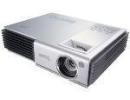'ZDNET Recommends': What exactly does it mean?
ZDNET's recommendations are based on many hours of testing, research, and comparison shopping. We gather data from the best available sources, including vendor and retailer listings as well as other relevant and independent reviews sites. And we pore over customer reviews to find out what matters to real people who already own and use the products and services we’re assessing.
When you click through from our site to a retailer and buy a product or service, we may earn affiliate commissions. This helps support our work, but does not affect what we cover or how, and it does not affect the price you pay. Neither ZDNET nor the author are compensated for these independent reviews. Indeed, we follow strict guidelines that ensure our editorial content is never influenced by advertisers.
ZDNET's editorial team writes on behalf of you, our reader. Our goal is to deliver the most accurate information and the most knowledgeable advice possible in order to help you make smarter buying decisions on tech gear and a wide array of products and services. Our editors thoroughly review and fact-check every article to ensure that our content meets the highest standards. If we have made an error or published misleading information, we will correct or clarify the article. If you see inaccuracies in our content, please report the mistake via this form.
BenQ CP120 digital projector


BenQ CP120
pros and cons
- Very light and small
- Bright image for a projector of this size
- Controls easy to manage
- Attractive design
- Wi-Fi rather fiddly to configure and limited in use
The CP120 attempts to infuse 'enjoyment' (a BenQ watchword) into the relatively staid world of digital projectors. Its black suede-effect zipped pouch feels like an upmarket drinks cooler, and its manual opens with a couple of pages of a smiling cartoon version of the projector giving cheery instruction on how to take care of it. As it warms up, the CP120 shines the message 'Enjoyment Matters' on the screen. But after that, it gets down to business and is a commendably serious beast. And for £739.07 (ex. VAT), it's also a good-value one.
Design
The CP120 is small and light — in fact, BenQ claims that this at 1.3kg projector is the smallest wireless projector in the world. Even so, it feels solid and robust. There is a built-in lens cover that slides aside easily, and a well-made front tilt leg that slides out smoothly at the touch of a button. This is much better designed than the tilt mechanisms on some other projectors.
The projector can take input from S-Video, composite video or analogue monitor connectors, as well as a wireless option we'll look at later. It also has a USB port to connect to the PC, allowing the remote — a thin, basic unit that does its job well — to be used for navigating through presentations.
Image
Like most portable projectors, the CP120 uses Texas Instruments' DLP technology. A 132W user-replaceable lamp gives a nice brightness of 1500 ANSI lumens, which is more than some in its class. The resolution is 1,024 by 768 (XGA), the contrast is rated at 2000:1 and the lens is by Carl Zeiss.
Subjectively, the colour is good, and the image both strong and stable, while focus is easily managed. The keystone adjustment is easy to understand and operate, with an automatic real-time keystoning feature. The projector has a nice quick-cool feature, which lets you unplug it 30 seconds after your presentation is finished, without damaging the bulb.
Top ZDNET Reviews
The CP120 comes to life reasonably quickly after you switch it on, searching briefly for inputs before settling on what's offered. We find that monitor output is usually the easiest way to drive a projector, and this works fine, but we did try the wireless option.
Why Wi-Fi?
Wireless connections on projectors are often rather more hassle than they are worth, and the CP120 is a case in point. That's no fault of BenQ; it's simply that Wi-Fi isn't a great medium to use to connect a projector to a PC -- especially one that's on the road and may be in a room flooded with Wi-Fi signals. If you're travelling with a notebook and a projector, the monitor cable isn't much extra to carry, and BenQ gives you another suede-ish zipped bag to put it in, along with the projector's power cable.
BenQ's wireless mode uses a client installed on the notebook, and this crashed regularly, possibly due to conflicts with other wireless software. The projector must be put into wireless mode and the client launched. Then it's a matter of pairing up on both the projector and the notebook.
We can't see many people going through that hassle, just to get a link that doesn't have the bandwidth to handle video or other fast-moving content. Luckily, Wi-Fi is widespread enough that it hasn't bumped the CP120's price up too much.